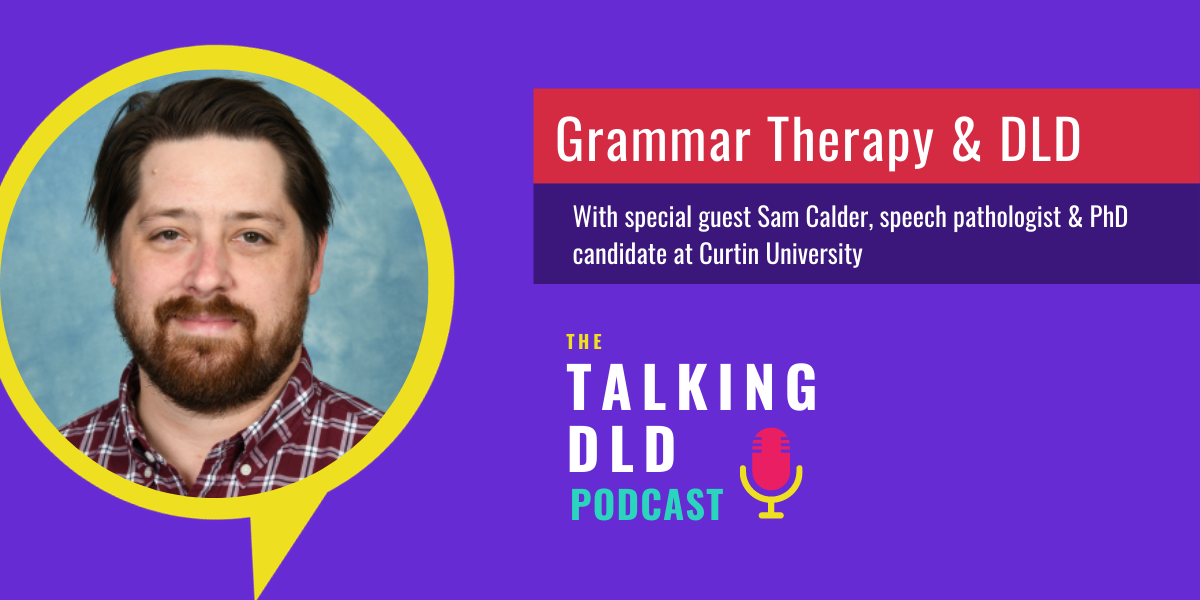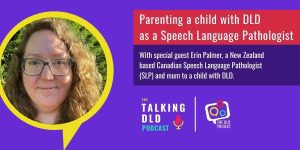Grammar therapy intervention. How do you do it and why is it particularly effective when working with children with DLD? In this episode of The Talking DLD Podcast our special guest is Dr Sam Calder, speech pathologist and academic from Curtin University in Perth who is investigating grammar intervention using shape coding.
Shape coding utilises colours and shapes to help kids learn how words fit together. This can be very helpful for children with DLD. In this episode Sam will:
- share how going from learning language to language for learning can be a real challenge for kids with Developmental Language Disorder
- provide examples of the signs of grammar challenges in children and how they can be strongly linked to DLD
- discuss the findings of his research and give practical guidance on how therapists, educators and families can apply the learnings in their work, at school or home.
You can find out more about Dr Calder’s work at the Language and Literacy in Young People website. Sam has also kindly provided his email address in case you have trouble accessing anything (e.g., articles) or have any questions: samuel.calder@postgrad.curtin.edu.au
Resources discussed in the podcast
- Combining implicit and explicit intervention approaches to target grammar in young children with Developmental Language Disorder. Read the publication here.
- Explicit Grammar Intervention in Young School-Aged Children With Developmental Language Disorder: An Efficacy Study Using Single-Case Experimental Design. Read the publication here.
- The Efficacy of an Explicit Intervention Approach to Improve Past Tense Marking for Early School-Age Children With Developmental Language Disorder. Read more here.
- The SHAPE CODINGTM system was designed by Speech & Language Therapist Dr Susan Ebbels at Moor House School & College to teach spoken and written grammar to school-aged children with Developmental Language Disorder (DLD). Read more here.





Pingback: Balados sur l’orthophonie – Marie-Pier Gingras, orthophoniste